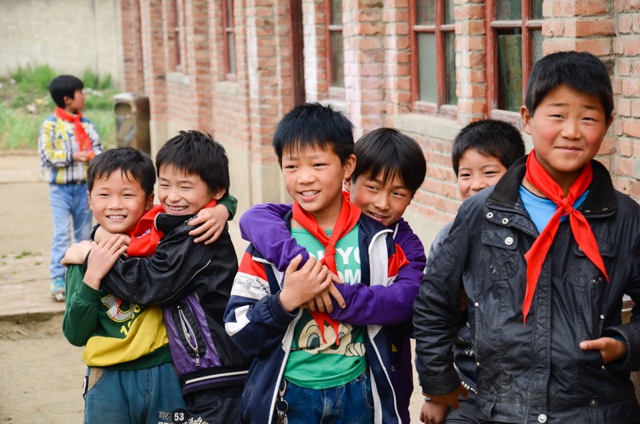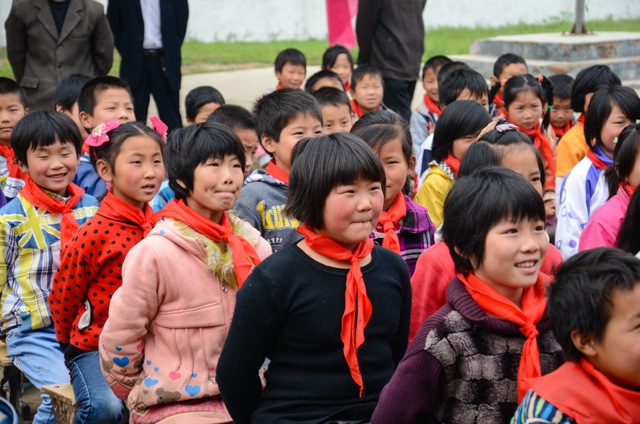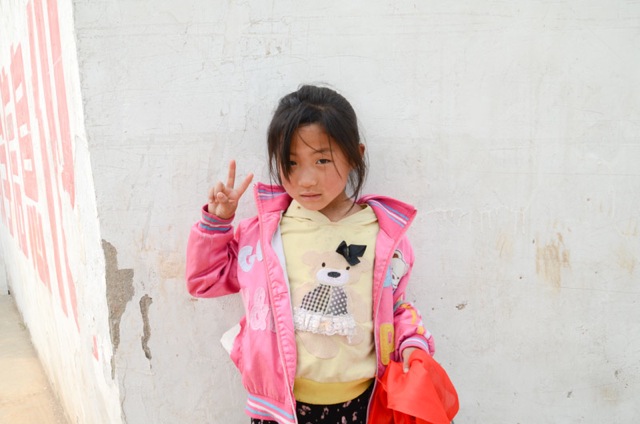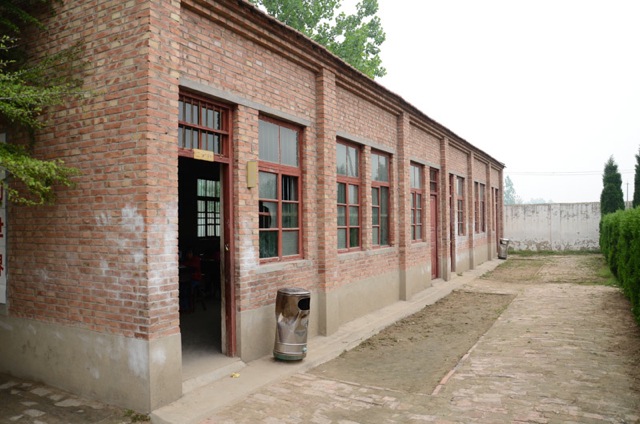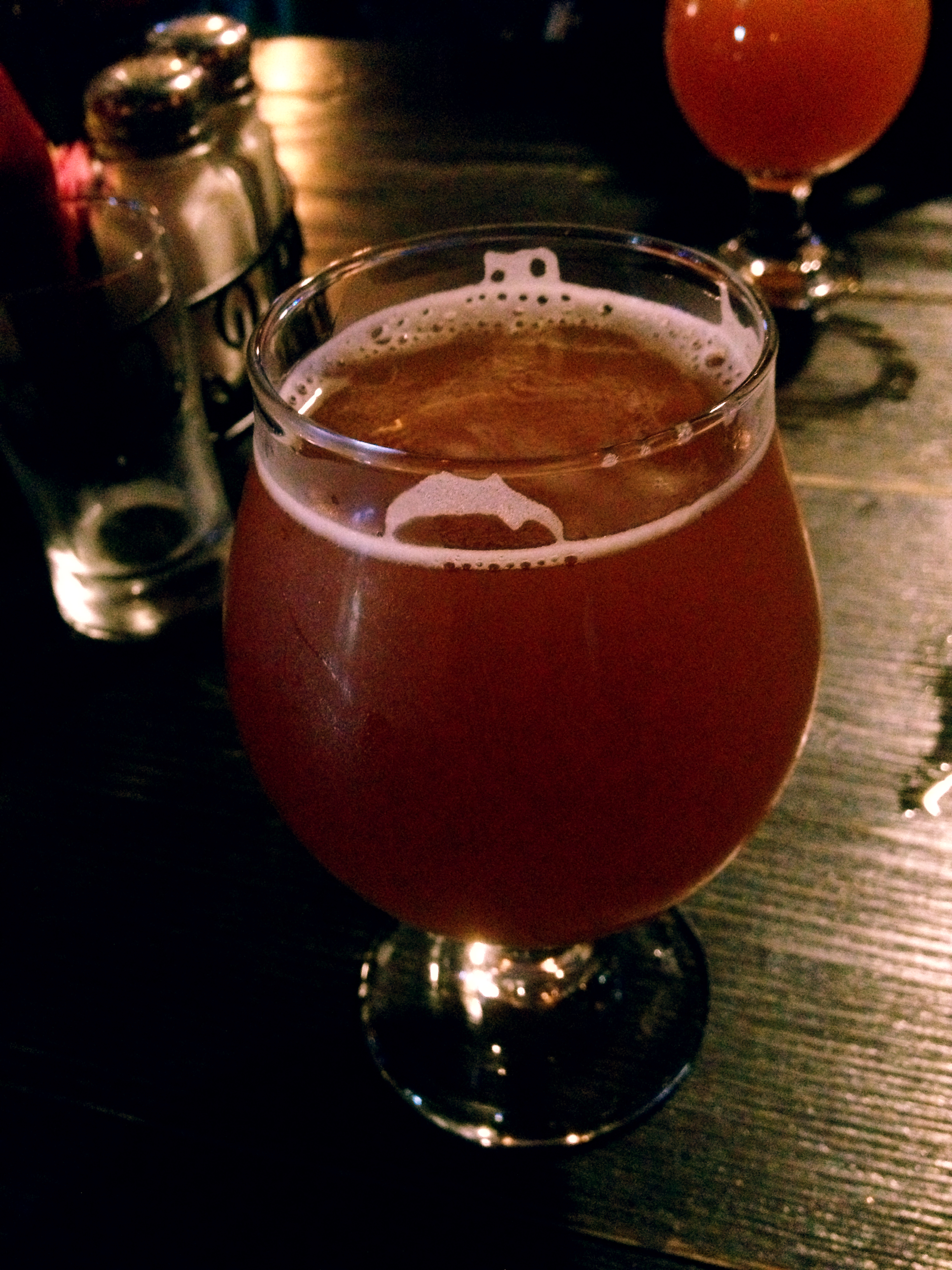After a few moments, I glanced over at his work. At the top of the paper, he had written pilot, simply copying the words from his book. But underneath, he had written the following, "I want to be a pilot when I grow up. I want to fly to the stars". An elaborate spaceship was drawn underneath, complete with a self portrait of the artist himself inside.
By the end of class, the paper lay discarded on the floor. I picked it up and asked the student if he wanted to take the picture home to show his family. He shook his head no and stated that he didn't need it. As the students left the room, I wondered about this student and what his future would hold. Would he become a pilot? Would he even have the chance? Or would his dreams simply fall away, discarded, much like his picture?
In April, I traveled to Shangqui, in rural Henan Province with Stepping Stones as part of their bi-annual, week long volunteer teaching tour to underprivileged schools. What followed was one of the best experiences I have had thus far in China.
Stepping Stones works with volunteers to teach English in Shanghai’s migrant schools and community centers, reaching over 4,000 students in 20 different migrant schools. They also regularly take groups of volunteers to teach English to children in rural schools outside of Shanghai. This is what I had chosen to be a part of.
We traveled by train to Henan, a province located in central China. Henan is the third most populous province in China, sending out millions of migrant workers every year to urban areas like Shanghai. This means many of these children are growing up with their grandparents, only seeing their parents once or twice a year if they are lucky.
The majority of migrant children do not make it to senior high school, and only a small handful are able to attend university. It is the goal of Stepping Stones to help these children from rural areas to attend senior high school and university, and thereby improve the future prospects of rural families.
A friend of mine had volunteered for a trip the previous year and recommended the experience to me. While I work in education, I had no direct teaching experience. However, the Stepping Stones coordinators ensured me that all I needed was a positive and enthusiastic attitude. And a command of the English language.

The students were amazing. Kind, attentive, and eager to learn. One the first morning, a group of my sixth grade students skipped their break and asked me to practice vocabulary with them instead.
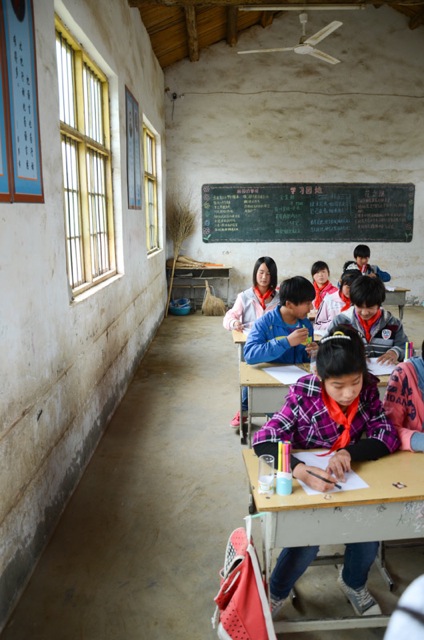
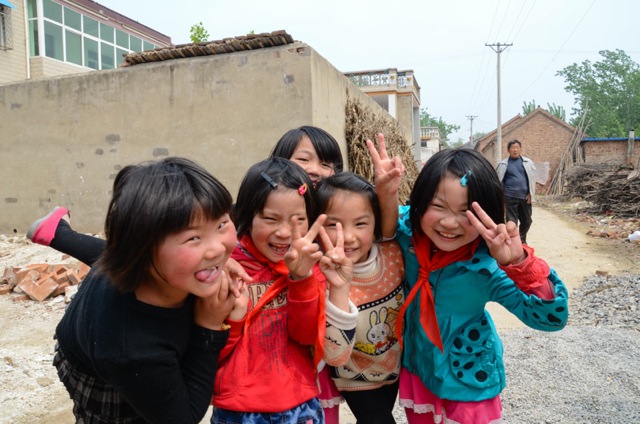
At the end of the day, I was presented with flowers picked by the students and hugs farewell. Do I think my few hours with these students greatly improved their English? No. But I know that I gave them a positive first introduction with a foreigner, provided them with fun lessons in English, and reminded them people care about them and their future.
Want to join the next volunteer teaching tour to Henan this November? Contact Gloria at projects@steppingstoneschina.net or check it out at http://steppingstoneschina.net/rural-volunteering-tours.

